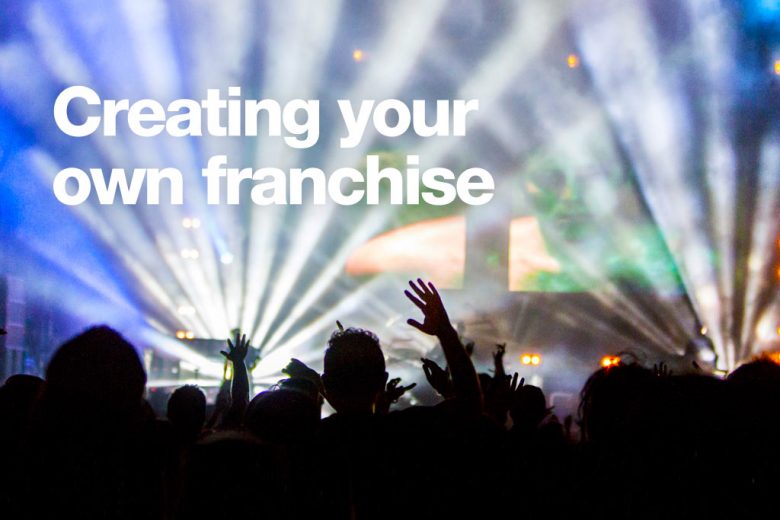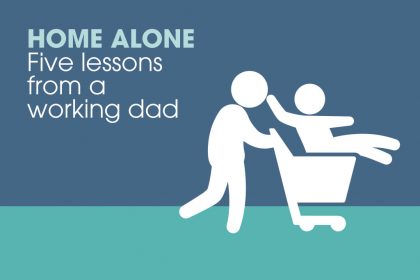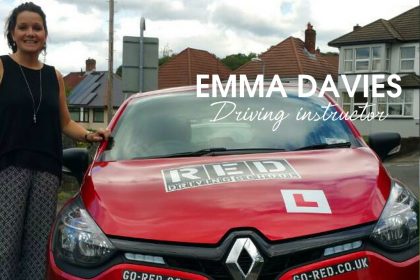Want to create your own franchise? How to raise investment
Dreaming of creating a business model you can franchise and sell across the UK or world? The chances are, at some point you’ll need investment. An entrepreneur shares his advice for raising it.
We’ve published a few articles about buying a franchise business (when to buy one, the four biggest mistakes you can make when buying one, and why women make great franchisees).
But what if, like Cheryl Macdonald from Yoga Bellies, you wanted to didn’t want to buy a franchise, but instead create one to sell?
Chris Mountford knows all about the ups and downs of creating a business model that can be sold as a franchise – he recently launched The Band Project, a license-based* business offering live performance and band-based classes to kids aged 8-16.
And to help any mums considering following a similar path, he’s kindly sharing his experience and advice with us.
So, you want to create a franchise?
I’m assuming you’ve got a brilliant idea for a business. Or maybe, like me, you’re running a lifestyle business but have dreams of turning it into a rock solid business that will support you and your family – one that can grow and blossom regionally, nationally or even internationally?
One route to achieving this is to raise investment – something I chose to do with The Band Project. I’d seen the impact of what I was doing musically and personally with my students and I wanted to see that replicated and scaled across the UK.
Four tips to help you raise investment for a franchise
If you’re planning on following a similar route, here are four helpful tips about the investment process, from someone who’s been there!
1) Take the decision
Amazing! You’ve been bold enough to say that your business idea has the potential to be something more than just a dream, and that you’re going to seek investment for it. But as you’ll soon learn, 99% of people you know will think you’re nuts. Absolutely nuts.
People you’ve known for years will give you a look (one you’ll become really used to), and others will say, “Oh, like Dragons Den?” and you’ll say, “Yes, sort of”. But I can assure you, it’s nothing like Dragons Den.
The ‘Dragons’ you’ll encounter tend to be a lot nicer, and the locations are far more normal than a low-lit warehouse. At the end of the day what you’re about to try and do is something thousands of business owners, entrepreneurs and wannabe entrepreneurs attempt and fail at.
So be very sure it’s something you want to forge ahead with, and understand it will be more work and more stress, disappointment, knock backs than you’ve ever faced before with zero guarantees at the end of it. So, if you’re sure…
2) Have a vision
Before you can take your franchise dream anywhere, you have to have a vision. What are you trying to achieve? If you’re not clear on this you’ll never convince a potential investor of what you’re trying to do. So to give you an example, with The Band Project this was my starting point:
My vision is of young musicians and bands aged 8-16 across the UK learning, recording and gigging through a supportive, encouraging and affordable brand using a teaching format based around my own experiences from the jazz, session and gospel musicians I’ve grown up playing with and learning from.
This brand won’t patronise young musicians, fail to see how much they can achieve or stifle their potential. It will be driven by a passion for music of all kinds and through the students playing the music they love they will become inspired about live music and performance, develop their self confidence, team work, social skills and expression.
Once you understand exactly what it is you want to business to achieve you can move on to the next step.
3) Make it scalable
Your vision means you understand what you’re trying to achieve. Scaling your business is the ‘how’. And it’s vital to know – an investor wants to have faith in your understanding of your sector and how you can grow the business. At the end of the day it’s all about their return and if the business can’t grow how are they going to get their return?
So you need to be clear – who else could do what you do? Who would it be of interest to?
In my business it was clear that the mums I met drove the majority of the word of mouth marketing – unsurprisingly this was how the classes grew in size predominantly. So I knew that however I grew the business, it had to be targeted towards parents to maximise their school contacts, friends and friend’s of their children.
The ‘how’ question was really to franchise or not to franchise. I chose not to. The basic franchise model is that a franchisee pays a larger sum of money at the beginning, often thousands and thousands of pounds, which the franchisor makes a decent profit from and then takes a percentage at the end of each year of the franchisees turnover.
So the first limitation is who exactly has that kind of money for a start up? If you’re going to go down the franchise route make sure you understand what kind of available funds people are likely to have in your target audience. There’s no point charging thousands if no one has thousands of pounds to spend.
In the real world, my target audience – parents and instrument teachers already running teaching practices – just don’t.
So I settled on a license because it best suited my target audience. A license can be added to an already existing business, it doesn’t require such a large initial outlay and it comes with a bit more freedom in how to promote and operate. This was vital as each area was going to come with its own quirks, and a one-size-fits-all marketing strategy seemed a hugely flawed approach.
I also felt that franchises expect you to be a ‘master of all trades’, and if you’re not, it could jeopardise your business growth and the franchisors’ ongoing financial stability. If you’re not making money then the franchisor is in a weak position.
If a franchise needs help to turn it around the franchisor may have only limited funds to help, and having seen the difficulties of other performance-based franchises it wasn’t a route I felt comfortable with.
To ensure the success of each Band Project license, it needed to have low-cost start up fees with ongoing support. Ultimately The Band Project’s success was going to be based around making sure each licensee had the business they’d dreamed of, and that it fulfilled their needs.
By focusing on that and achieving my vision as previously outlined I felt I had a great business model that was now ready to take to investors.
4) Be persistent
It’s taken three years to get to this point. Eighteen months trialling courses and then eighteen months or so focused on raising the investment. I’ve had so many people say no to me, some say it will never work, and others think they can do it better and try to change my vision, approaches and ambition.
To give you an idea of what I was up against and what you could face, I’ve outlined the brief (believe it or not) version of the eighteen months or so I spent focused on raising investment:
- When I decided I was going to raise investment I found a local business support company who helped start-ups raise investment – I didn’t know any investors so this seemed to be the best place to start.
- Brilliant I thought. Even better – no fees unless they succeed. What actually happened was they wrote a couple of lines onto the Angel Investment Network and when there wasn’t a massive response they then just stopped taking my calls and replying to my e-mails.
- Undeterred I decided to learn what I could from the experience and move on. I then found myself in a meeting with an investor after reading an article about an acquisition they’d made roughly in my sector. A few e-mails later and I’m in London in my suit heading to the meeting.
- What happened next was they proceeded to pick some serious holes in my first version of the business plan. I left the meeting in Soho feeling awful but at the same time knowing deep down that they weren’t the right people for me to work with and that my plan could only be improved from what they’d been saying and this was an opportunity to learn and move forward.
- So I went back and I re-wrote the business plan and cracked on. I Googled and Googled until I found a company I liked the sound of, again a business support team with investor links. I called them and was drilled on the phone by one of the Directors who liked the sound of my plan after a thirty-minute interrogation.
- I donned the suit again and was in a meeting with them within the week. Their whole idea was to go down the Venture Capital route and ask for far more money than I actually needed. It’s where their contacts were and they felt with the big money investments being made into higher music education this was a viable strategy.
- The business plan was amended, the projections created from scratch in more detail than I’d ever seen and off we went. The Venture Capital’s response was unanimous – great idea but come back when you’ve got a few more zeros behind you.
- And then the unthinkable happened – the two directors fell out, their company ceased and I was left with no support and needing to find £1,300 I didn’t have if I wanted to carry on with a mentoring program they had got me involved in (and had said they would pay for) that would culminate in me pitching to investors.
- I was left pretty devastated – how can this happen again, I thought I was so close, etc. But this was the turning point for me. This was the worst moment but was also the one that made me resolute that I was going to do it and no one or anything was going to stop me. I switched on the computer and the hunt through LinkedIn began – a new tack to reach the right people.
- I stumbled across ‘My Business FD’ via a company who placed those seeking investors with the right support teams. They in turn introduced me to ‘The School For Creative Start-ups’, an organisation specialising in putting creative businesses out in front of investors.
- I went through the audition rounds giving my pitch to the team to ensure I was up to their high standards. They had to be convinced about the idea and also about me because they were only putting the best ideas out in front of their investment network.
- In November of last year I pitched at an event at Coutts bank to around twenty investors and from that event one investor came on board and I was in conversation with a couple more.
- The following month I catching up with old school friends I hadn’t see in years telling them about what I was trying to do and one liked the sound of it. Meetings ensued and his investment closed the funding around eight weeks ago.
- Thanks to that final investment, six weeks ago I was able to launch ‘The Band Project Mums & Dads’ licensing program and we now have our first licences in Southwark and Chiswick which are due to launch to the public in September. I also have a number of mums and dads interested in other areas to roll out our courses in September and January.
Good luck with your own journey!
As you can see, for me raising investment for The Band Project was a nail-biting and often frustrating rollercoaster ride. But in the end has been an amazing experience.
If you’re dreaming or planning to embark on a similar experience I wish you luck, and hope that my advice and experience can help you.
Chris Mountford is founder of The band Project, a license-based business that delivers exciting and inspiring live performance and band-based courses to young musicians and passionate teenagers.
* Licensing is a similar business model to franchising in which a company sells the right to use their business idea and brand, and retains control over the use of these, but otherwise does not influence the actual business operations of their licensees.










